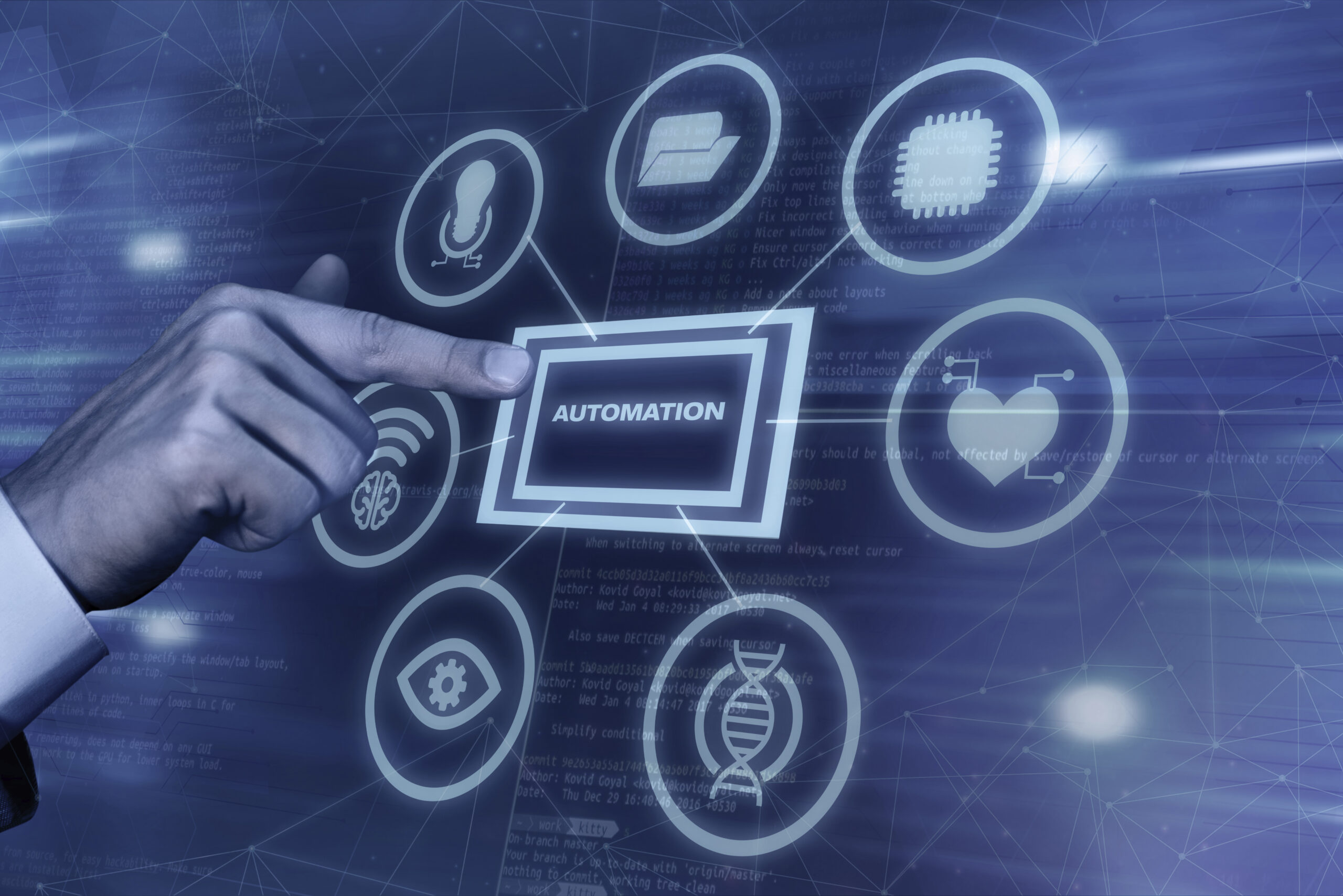Did you know? Companies around the world are expected to spend $644 billion on generative AI in 2025 — a big 76.4% increase from 2024, Gartner forecast says this . The future of software development in the age of AI will be characterised by a shift towards AI-assisted development, where AI tools would assist in faster software development rather than replace human developers. This evolution will lead to more efficient code generation, streamlined debugging processes, and increased focus on higher-level design and problem-solving by developers.
We live in times of change, where AI is advancing and changing industries in ways we once thought were impossible. Programmers no longer have to spend hours sifting through lines of code to find a single bug. Instead, AI-powered tools do the heavy lifting — identifying errors, suggesting fixes, and even generating code snippets based on specific project requirements. This is not some distant future; it’s happening right now, and it’s changing the way software is created.
For years, AI has been quietly making its mark in software development, primarily through Machine Learning (ML). ML algorithms have been used to analyze data, predict outcomes, and even automate certain coding tasks. But now, AI is stepping up its game. It’s not just about handling data or running predictive analyses; it’s about actively participating in the development process.
AI-powered platforms like Qodo, DeepSeek , Blackbox AI, ChatGPT are prime examples of how AI can assist developers in generating code, troubleshooting bugs, and optimizing code structure.
But what does this mean for the developers themselves? Well, their roles are evolving. While AI takes over repetitive tasks, programmers are being freed up to focus on higher-level work — system design, strategic planning, and creative problem-solving. Instead of spending hours writing boilerplate code (refers to reusable code blocks that are repeatedly used with little or no modification throughout a program or software), they can now spend more time on complex architectural decisions and innovative features. AI in coding doesn’t mean that all the human developers are going to be replaced; rather, it means they are becoming more valuable in areas that require critical thinking, creativity, and human judgment.
So let’s not forget the impact on job creation. AI has already opened doors to new positions within the tech industry. Data scientists, AI trainers, and ML engineers are in high demand, and as AI continues to evolve, we can expect even more specialized roles to emerge.
Let’s go through a comprehensive exploration of this transformation
How AI Changes the Software Development World Today?
Automation of Repetitive Tasks: AI-powered tools handle routine tasks like code generation, code refactoring, and bug detection, allowing developers to focus on complex and creative aspects of projects. These tools use ML algorithms to learn from historical data, identifying repetitive patterns and automating mundane processes, effectively minimizing human error and boosting productivity.
Enhanced Code Generation: Tools like Qodo, DeepSeek, Blackbox AI, and ChatGPT assist in generating code snippets, auto-completing code, and suggesting code structures based on patterns. They leverage natural language processing and ML to interpret developer inputs and generate relevant code structures. However, human oversight is essential to refine and validate AI-generated code to ensure it meets project requirements and coding standards.
Advanced Bug Detection and Fixing: AI systems identify bugs by analyzing past code data, suggesting potential fixes, and even generating patches automatically. Predictive models are trained to detect vulnerabilities based on previous bug reports and code anomalies, reducing debugging time and effort. This not only expedites the development cycle but also enhances overall code quality.
Security Scanning and Vulnerability Detection: AI tools proactively scan code for security vulnerabilities, flagging weak encryption and potential data breaches early in the development cycle. They use threat intelligence and ML to predict potential attack vectors, helping developers mitigate security risks before deployment.
Optimization and Refactoring: AI systems assess existing code for inefficiencies, suggesting optimization strategies to enhance performance and maintainability. By analyzing code structure and identifying redundant segments, these tools recommend refactoring options that streamline code execution, reduce load times, and minimize memory usage.
DevOps Process Evolution: AI aids in streamlining DevOps practices by analyzing code changes, monitoring production metrics, and providing real-time insights to optimize CI/CD pipelines. It identifies bottlenecks in the deployment process, recommends performance enhancements, and ensures seamless integration across multiple environments.
NLP Applications in Development: Natural Language Processing (NLP) has enabled AI to power chatbots, virtual assistants, and voice-activated interfaces, expanding software functionality and enhancing user experience. Developers now utilize NLP APIs to create intuitive user interfaces that respond to human language inputs effectively.
Personalization and Recommendations: AI algorithms analyze user data to personalize software experiences, making recommendations based on user behaviour and preferences. By studying usage patterns and interaction data, AI tools can suggest relevant features, content, or configurations, leading to more engaging and user-centric applications.
Why AI Skills Matter for Developers in 2025 ?
Developers must now possess a combination of traditional technical skills and emerging AI-focused expertise to stay competitive. Adapting to this evolving environment requires an emphasis on AI technologies, data manipulation, and collaborative capabilities. Here’s a comprehensive look at the essential skills for developers in the AI era:
Technical Skills
Machine Learning (ML) and Data Science
– Foundational Knowledge: Understanding the principles of ML algorithms such as linear regression, decision trees, and neural networks is crucial. Developers should also grasp data preprocessing techniques, including data cleaning, normalization, and feature selection.
– Data Science Expertise: Analyzing data through visualization techniques using libraries like Matplotlib, Seaborn, and Plotly can help in identifying patterns and trends. Statistical analysis and exploratory data analysis (EDA) are vital for building robust ML models.
– Model Evaluation and Deployment: Developers should be able to assess model accuracy using metrics like precision, recall, F1-score, and AUC-ROC. They must also be capable of deploying models using frameworks such as Flask, Django, or FastAPI.
Neural Networks and Deep Learning
Neural Networks Basics: Master the structure of neural networks, including activation functions and back propagation.
Deep Learning Frameworks: Gain proficiency in TensorFlow, PyTorch, and Keras to build complex models for image recognition, text analysis, and predictive analytics.
Specialized Networks: Learn CNNs for image processing and RNNs or LSTM for sequence data, such as time-series forecasting and natural language processing (NLP).
Natural Language Processing (NLP):
Text Processing Techniques: Knowledge of tokenization, stemming, lemmatization, and vectorization is essential for working with text data.
NLP Libraries and Frameworks: Developers should be adept in NLTK, spaCy, and the transformers library for building chatbots, language models, and sentiment analysis tools.
Language Models and GPT: Understanding advanced NLP models like BERT, GPT, and T5 enables developers to work on AI-powered text generation, translation, and summarization tasks.
Technical Debt Management:
Identifying Technical Debt: Recognize areas in the codebase that could lead to issues over time, such as poorly structured code, outdated libraries, or lack of documentation.
Prioritization and Metrics: Implement systems for tracking technical debt through metrics like code complexity, defect density, and code churn.
Refactoring and Optimization: Learn how to refactor code systematically, reducing technical debt while ensuring code stability and performance.
Soft Skills
Domain Knowledge
AI is applied across diverse industries, including finance, healthcare, and autonomous systems. Developers should focus on acquiring sector-specific knowledge to better understand the challenges and regulatory constraints within each domain.
For instance, healthcare AI projects may require a deep understanding of patient data privacy laws, while finance-focused projects may demand familiarity with quantitative analysis and risk management.
Lifelong Learning and Adaptability
The AI landscape evolves rapidly; continuous learning is non-negotiable.
Developers should actively participate in online AI courses, attend industry conferences, and explore AI communities like Kaggle and GitHub to stay updated with the latest advancements and techniques.
Critical Thinking and Problem Solving
Developers must sharpen their problem-solving skills to effectively break down complex AI projects into manageable tasks.
This includes the ability to assess project feasibility, identify potential data bottlenecks, and implement algorithmic solutions tailored to specific business problems.
Interdisciplinary Collaboration
AI projects often require collaboration between developers, data scientists, domain experts, and business stakeholders. Effective communication skills are crucial to align technical solutions with business objectives.
Developers must learn to convey complex technical concepts in a simplified manner to non-technical team members, fostering better collaboration and project outcomes.
Business Understanding
A deep understanding of business processes enables developers to prioritize features that drive business value.
This skill involves balancing technical decisions with business goals, ensuring that AI solutions not only work efficiently but also align with overarching business strategies.
Evolving Role of Software Engineers
As AI takes over more routine tasks, the role of software engineers will shift towards more strategic, design-oriented responsibilities. Key aspects of this evolving role include:
Data Curation and Management: Developers will increasingly need to manage and curate data for AI model training, ensuring data quality, relevance, and diversity.
Model Training and Fine-Tuning: Understanding the mechanics of machine learning models will become a vital skill for software engineers. They will need to train AI models, optimize algorithms, and validate outcomes.
System Design and Architecture: Engineers will focus on designing complex, AI-integrated systems that combine traditional programming with AI components. This includes developing modular architectures that facilitate seamless AI integration.
Ethical and Responsible AI: As AI becomes more prevalent, developers will need to consider ethical implications, including bias mitigation, data privacy, and security. They will play a crucial role in ensuring that AI systems align with ethical guidelines and societal expectations.
Impact on Development Processes
AI will profoundly influence software development methodologies, especially in terms of speed, quality, and collaboration.
Agile and CI/CD Practices: With AI handling repetitive tasks, development cycles will become more iterative and faster. Continuous Integration and Continuous Deployment (CI/CD) pipelines will be further optimized through AI-powered automation tools.
Code Quality Assurance: AI-driven code scanning tools will perform continuous code reviews, checking for vulnerabilities, inefficiencies, and adherence to coding standards.
Monitoring and Maintenance: AI systems will monitor deployed software in real-time, identifying potential issues, providing predictive maintenance suggestions, and automatically patching known vulnerabilities.
Collaborative Development: AI-powered platforms will facilitate collaboration by generating documentation, summarizing code changes, and suggesting best practices to team members.
Challenges and Opportunities
While AI offers significant advantages, it also presents challenges that developers must address:
Ethical Considerations: Developers must be vigilant about biases in AI models and work towards building fair and inclusive AI systems.
Data Privacy and Security: With AI relying heavily on data, safeguarding sensitive information and implementing data protection measures will be critical.
Upskilling and Retraining: As the development landscape evolves, developers will need to upskill continuously, acquiring knowledge in AI, data science, and ethical AI practices.
Innovation and Creativity: AI will enable developers to focus on higher-order tasks, fostering creativity and encouraging innovative problem-solving approaches.
Collaboration and Integration: Developers will need to work closely with AI systems, integrate AI tools into traditional development processes, and collaborate with cross-functional teams to achieve project objectives.
AI is Empowering, Not Replacing Developers!
Despite the rise of AI in software development, human developers remain crucial for complex problem-solving, strategic planning, and ethical considerations, as emphasized by Satya Nadella, CEO of Microsoft. The focus is on augmenting human capabilities rather than replacing them, with AI serving as a powerful assistant that enhances productivity and creativity.
Conclusion
The future of software development in the age of AI is not about replacing developers but empowering them. By automating mundane tasks and providing intelligent insights, AI will enable developers to focus on more complex, creative, and strategic aspects of software development. Embracing AI tools, acquiring new skills, and adapting to emerging technologies will be key to thriving in this dynamic and evolving landscape.




